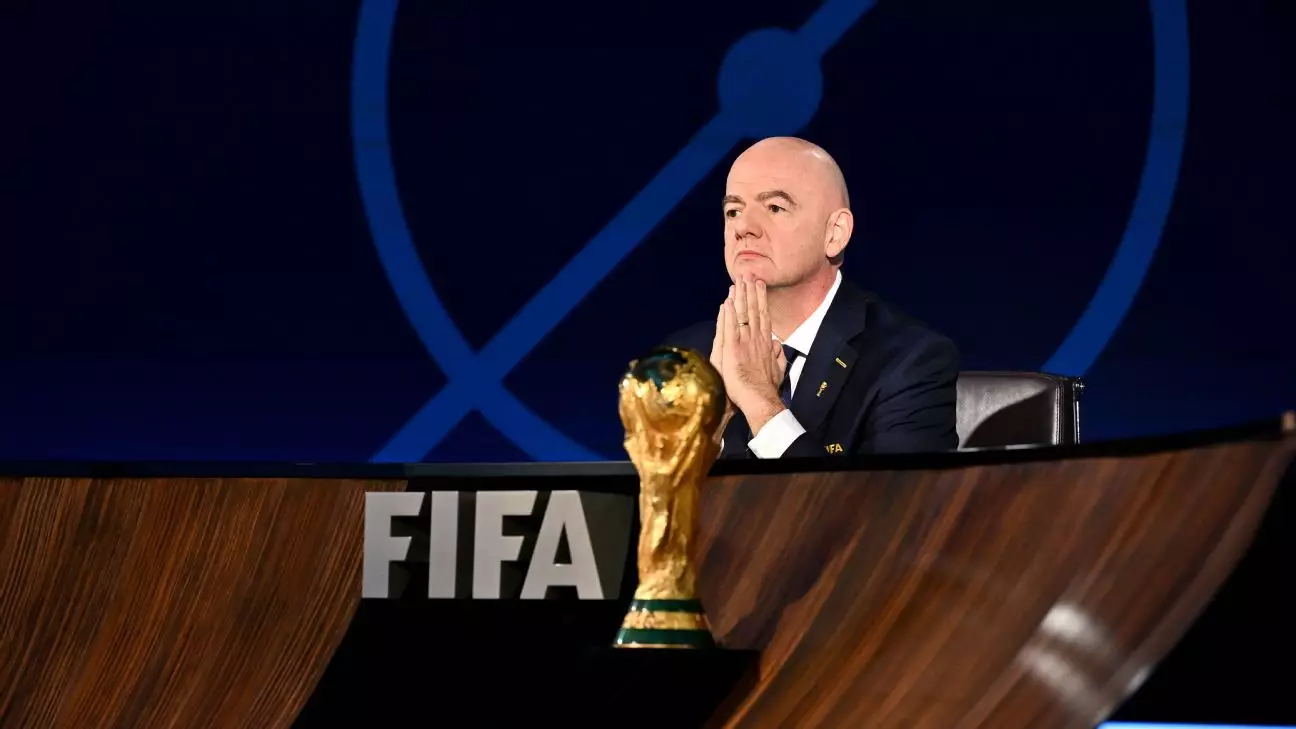The recent announcements from FIFA regarding the venues for the 2030 and 2034 World Cups have sparked significant conversation within the football community. With the 2030 tournament set to span Morocco, Portugal, and Spain, complemented by three matches in South America, and the 2034 edition awarded exclusively to Saudi Arabia, the selection process has illuminated both potential benefits and drawbacks. The decision was reached during an extraordinary general congress, emphasized by FIFA President Gianni Infantino’s declaration that the initiative aims to disseminate football across diverse regions, rather than confining it to traditional strongholds.
While Infantino championed the idea that an expanded World Cup format would enhance opportunities without compromising quality, skepticism remains. The Norwegian Football Federation’s vocal criticism concerning the acclamation process highlights significant concerns about the transparency and consistency within FIFA’s bidding framework. Such dissent invites scrutiny of FIFA’s ethical practices and raises questions about how decisions are made within the organization. Notably, the sole bidder status of Saudi Arabia for the 2034 World Cup may raise eyebrows, particularly among nations that may have aspired to host the prestigious tournament.
As FIFA negotiates a complex landscape of global football governance, there is a striking historical resonance in the plans for the 2030 World Cup. This tournament marks the centenary of the inaugural World Cup held in Uruguay — a symbolic bookend to a century of football evolution. The choice to host a match in Montevideo’s Centenario Stadium embodies both nostalgia and a deep appreciation for the sport’s roots, juxtaposed against the ambitious and controversial Saudi bid. This historical homage underscores the ongoing tension between tradition and modernity in world football.
The decision-making process has not only raised eyebrows but also fostered discussions about inclusivity within international football. With 48 teams set to compete in these tournaments, the automatic qualification for host nations raises concerns about equitable opportunities for all footballing nations. The potential for heated competition among smaller nations for a spot in a massive tournament contrasts sharply with more powerful footballing countries swiftly securing their position through host status. Thus, the call for inclusivity and fairness continues to echo through the halls of FIFA, pushing for a future less dominated by traditional powerhouses.
Hosting major international tournaments also entails navigating logistical challenges. FIFA faces ongoing resistance from Europe’s major leagues regarding the planned winter tournament in Saudi Arabia. The potential disruption to established league schedules introduces a layer of complexity that FIFA must address. Securing cooperation from leagues and players is essential to maintain harmony within the sport and ensure a successful event. This balancing act encapsulates FIFA’s multifaceted responsibilities as it looks to the future of football.
The decisions regarding the 2030 and 2034 World Cups are not merely logistical milestones; they represent an opportunity for FIFA to demonstrate its commitment to transparency, fairness, and global engagement in the sport. As the world looks forward to these landmark tournaments, the eyes of football fans and stakeholders alike will be closely watching how these visions unfold.

